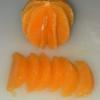-
Welcome to the eG Forums, a service of the eGullet Society for Culinary Arts & Letters. The Society is a 501(c)3 not-for-profit organization dedicated to the advancement of the culinary arts. These advertising-free forums are provided free of charge through donations from Society members. Anyone may read the forums, but to post you must create a free account.
Full On Food
-
Similar Content
-
- 1,049 replies
- 191,296 views
-
- 2,697 replies
- 548,375 views
-
Food Tones
By liuzhou,
- 12 replies
- 792 views
-
- 145 replies
- 29,654 views
-
Food Songs 1 2 3
By liuzhou,
- 68 replies
- 13,993 views
-
-
Recently Browsing 0 members
- No registered users viewing this page.







Recommended Posts